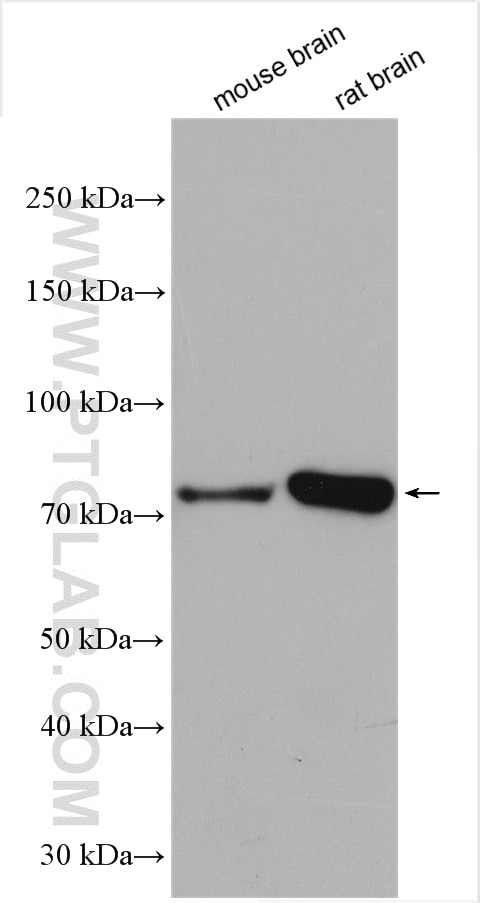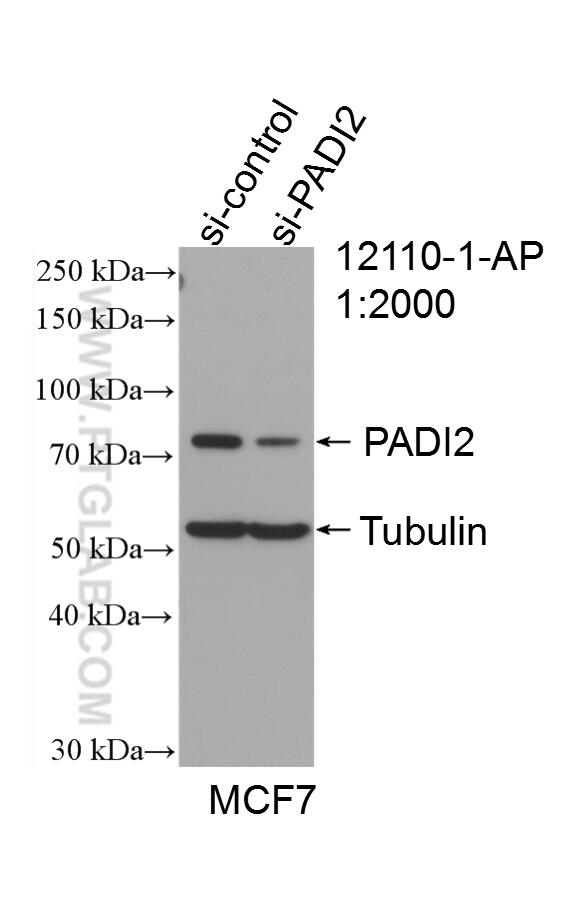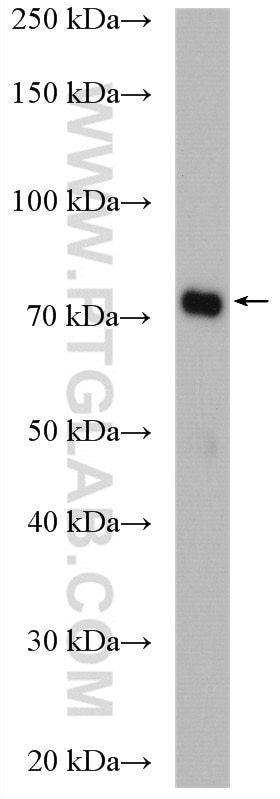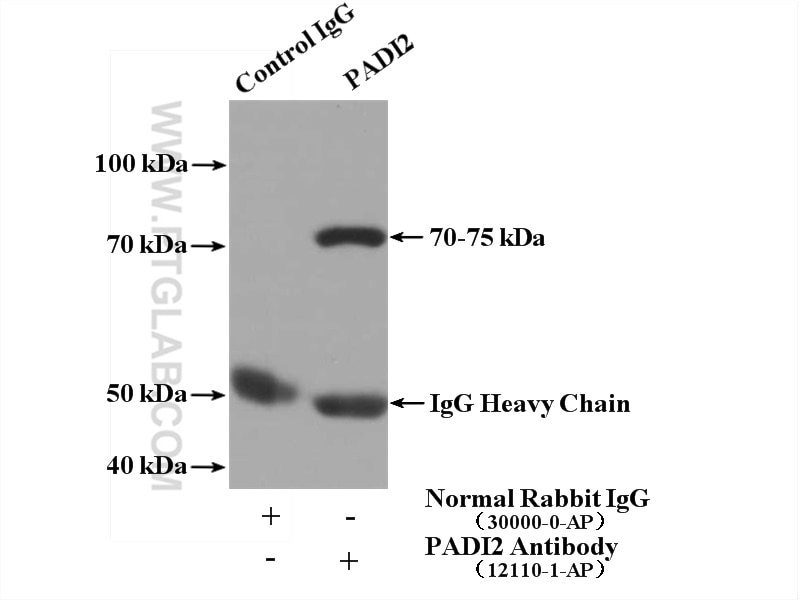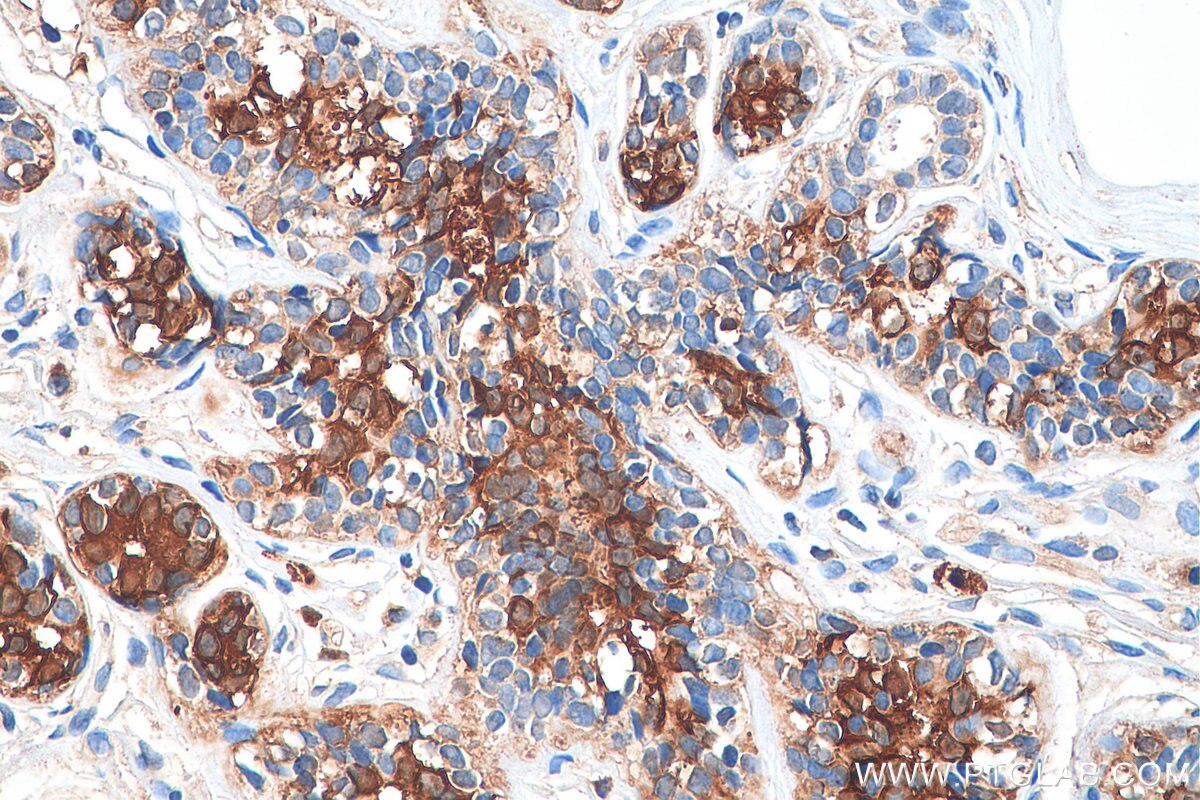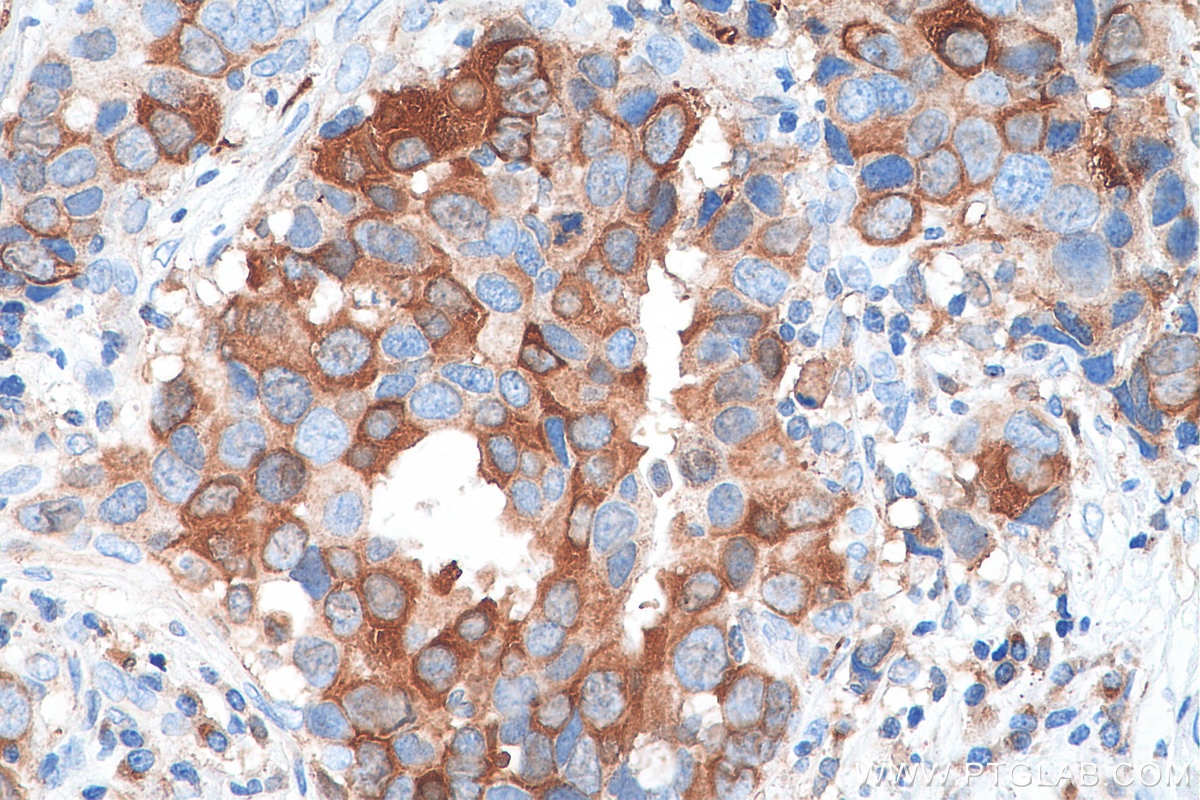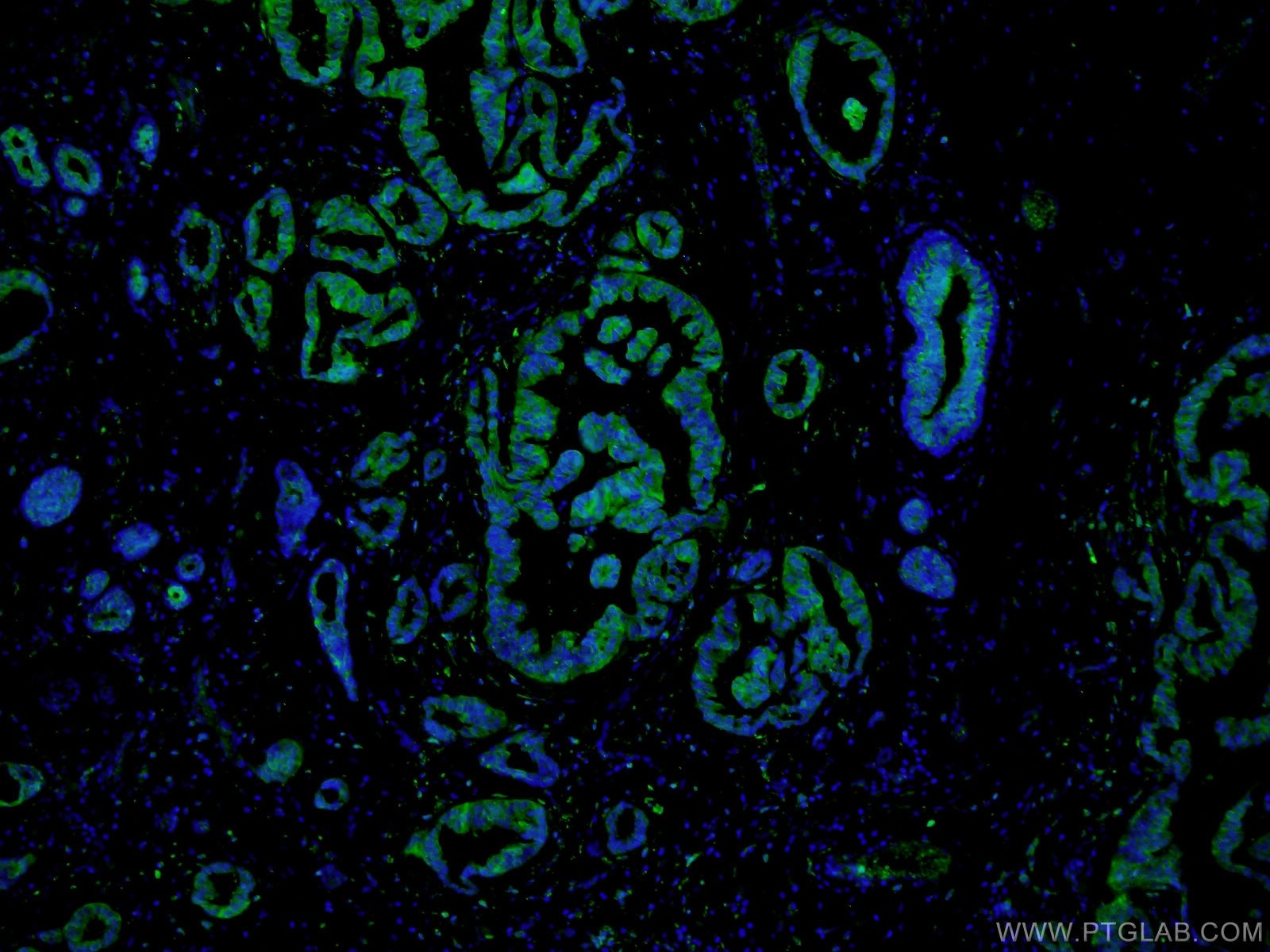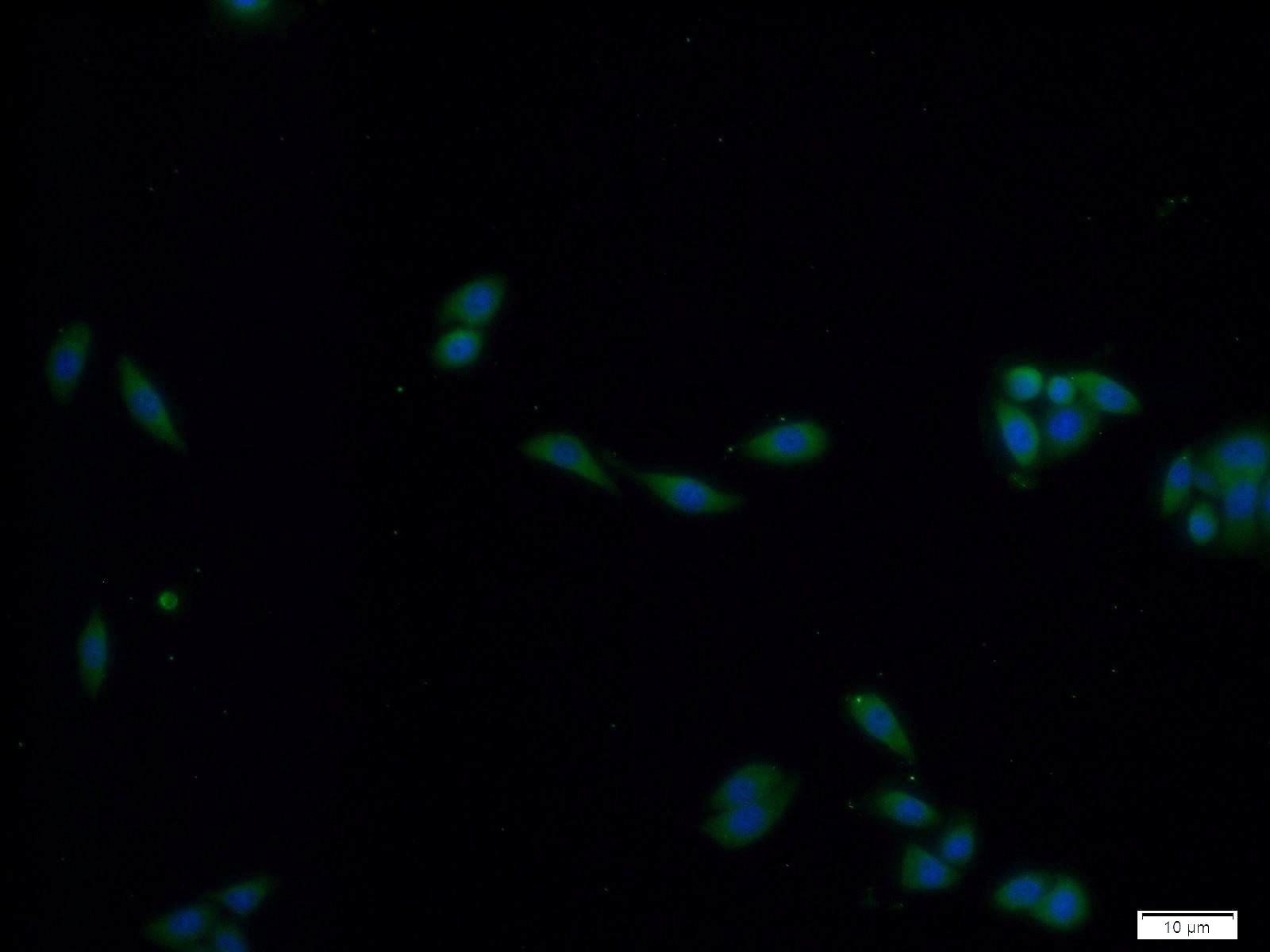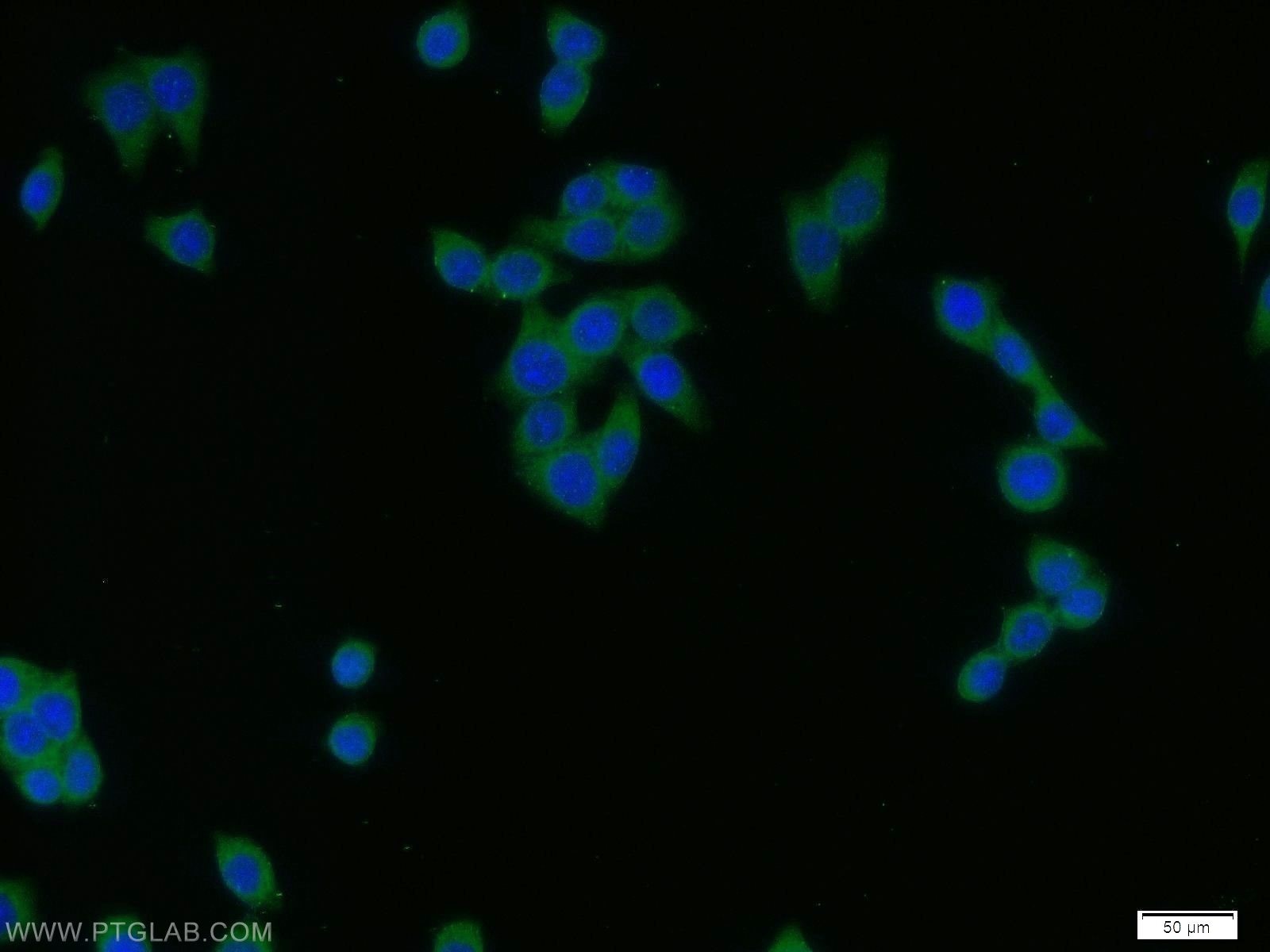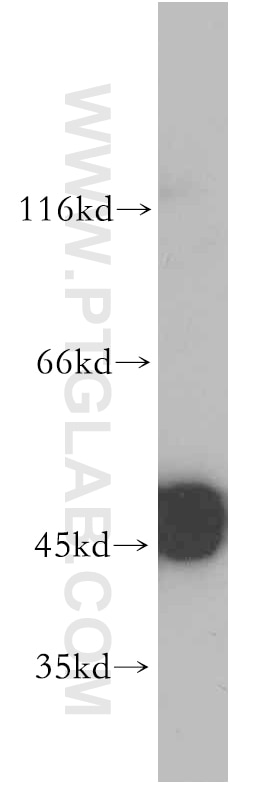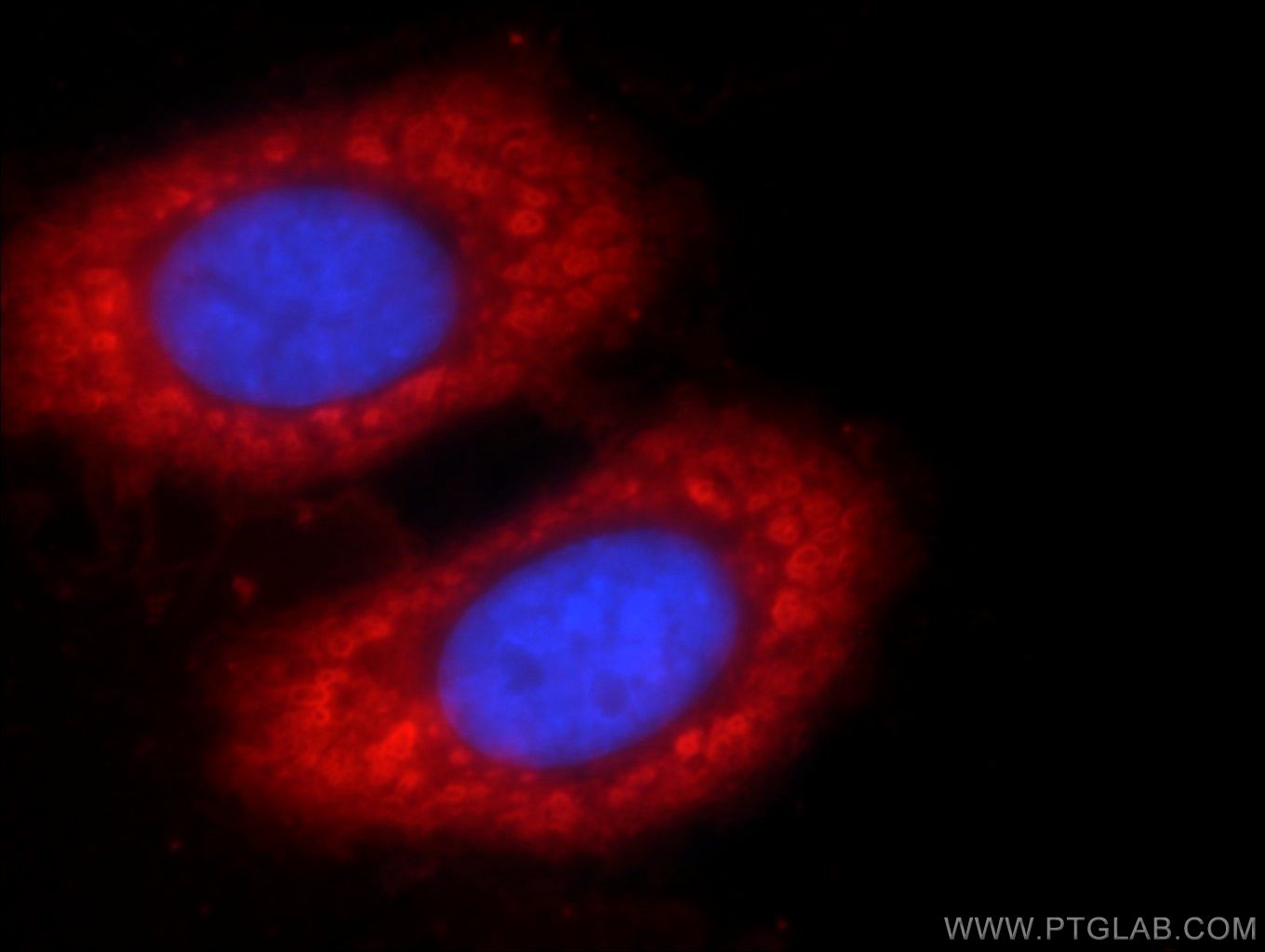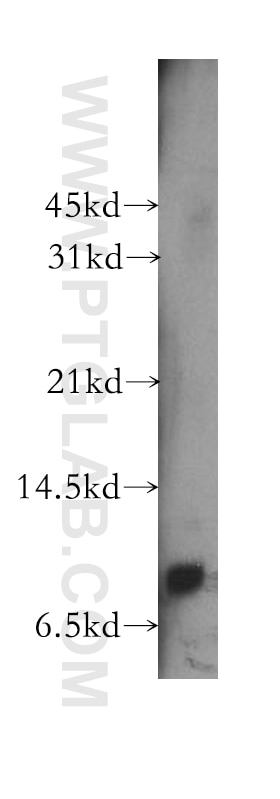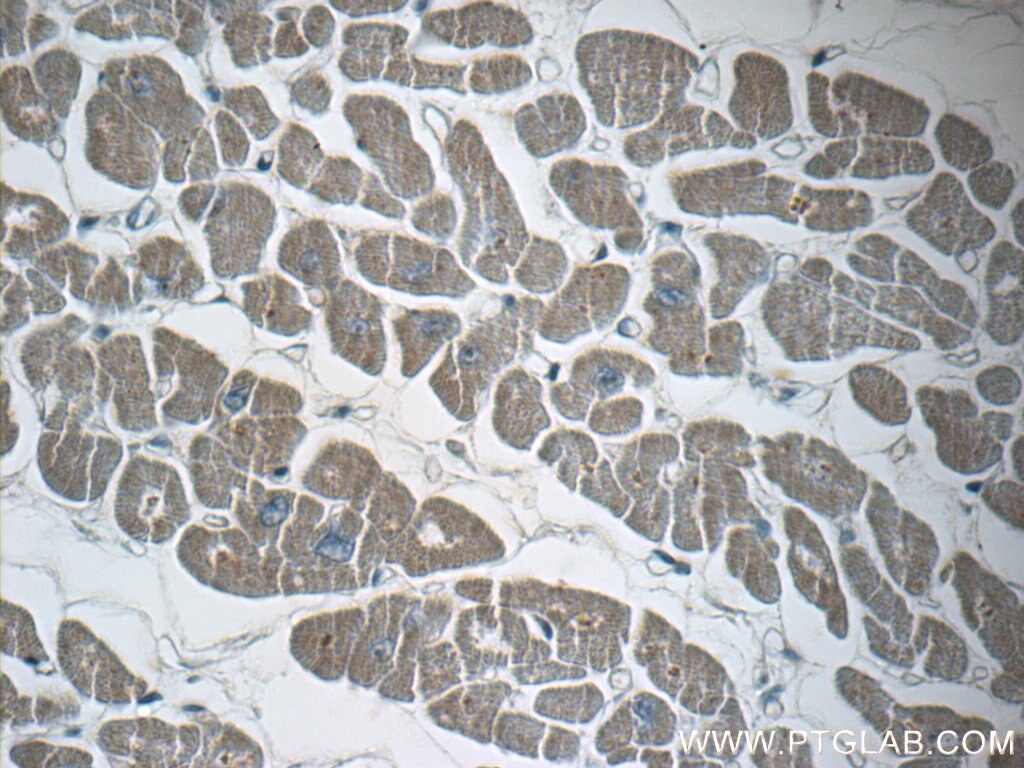- Featured Product
- KD/KO Validated
PADI2 Polyklonaler Antikörper
PADI2 Polyklonal Antikörper für WB, IHC, IF/ICC, IF-P, IP, ELISA
Wirt / Isotyp
Kaninchen / IgG
Getestete Reaktivität
human, Maus, Ratte und mehr (2)
Anwendung
WB, IHC, IF/ICC, IF-P, IP, COIP, ELISA, Blocking assay
Konjugation
Unkonjugiert
Kat-Nr. : 12110-1-AP
Synonyme
Galerie der Validierungsdaten
Geprüfte Anwendungen
| Erfolgreiche Detektion in WB | Maushirngewebe, MCF-7-Zellen, Rattenhirngewebe |
| Erfolgreiche IP | Maushirngewebe |
| Erfolgreiche Detektion in IHC | humanes Mammakarzinomgewebe Hinweis: Antigendemaskierung mit TE-Puffer pH 9,0 empfohlen. (*) Wahlweise kann die Antigendemaskierung auch mit Citratpuffer pH 6,0 erfolgen. |
| Erfolgreiche Detektion in IF-P | humanes Mammakarzinomgewebe |
| Erfolgreiche Detektion in IF/ICC | BxPC-3-Zellen, HeLa-Zellen |
Empfohlene Verdünnung
| Anwendung | Verdünnung |
|---|---|
| Western Blot (WB) | WB : 1:500-1:2000 |
| Immunpräzipitation (IP) | IP : 0.5-4.0 ug for 1.0-3.0 mg of total protein lysate |
| Immunhistochemie (IHC) | IHC : 1:50-1:500 |
| Immunfluoreszenz (IF)-P | IF-P : 1:50-1:500 |
| Immunfluoreszenz (IF)/ICC | IF/ICC : 1:10-1:100 |
| It is recommended that this reagent should be titrated in each testing system to obtain optimal results. | |
| Sample-dependent, check data in validation data gallery | |
Veröffentlichte Anwendungen
| KD/KO | See 12 publications below |
| WB | See 35 publications below |
| IHC | See 12 publications below |
| IF | See 19 publications below |
| FC | See 2 publications below |
| CoIP | See 1 publications below |
Produktinformation
12110-1-AP bindet in WB, IHC, IF/ICC, IF-P, IP, COIP, ELISA, Blocking assay PADI2 und zeigt Reaktivität mit human, Maus, Ratten
| Getestete Reaktivität | human, Maus, Ratte |
| In Publikationen genannte Reaktivität | human, Hausschwein, Hund, Maus, Ratte |
| Wirt / Isotyp | Kaninchen / IgG |
| Klonalität | Polyklonal |
| Typ | Antikörper |
| Immunogen | PADI2 fusion protein Ag2755 |
| Vollständiger Name | peptidyl arginine deiminase, type II |
| Berechnetes Molekulargewicht | 665 aa, 75 kDa |
| Beobachtetes Molekulargewicht | 70-75 kDa, 50 kDa |
| GenBank-Zugangsnummer | BC009701 |
| Gene symbol | PADI2 |
| Gene ID (NCBI) | 11240 |
| Konjugation | Unkonjugiert |
| Form | Liquid |
| Reinigungsmethode | Antigen-Affinitätsreinigung |
| Lagerungspuffer | PBS mit 0.02% Natriumazid und 50% Glycerin pH 7.3. |
| Lagerungsbedingungen | Bei -20°C lagern. Nach dem Versand ein Jahr lang stabil Aliquotieren ist bei -20oC Lagerung nicht notwendig. 20ul Größen enthalten 0,1% BSA. |
Hintergrundinformationen
PADI2, also named as KIAA0994, PDI2, PAD-H19, and PAD2(Peptidylarginine deiminase II ), belongs to the protein arginine deiminase family. It catalyzes the deimination of arginine residues of proteins. PADI2 may play a regulatory role in the expression of lactation-related genes via histone citrullination during diestrus (PMID:20668670). PADI2 has two isoforms with MW 75 kDa and 49 kDa.
Protokolle
| Produktspezifische Protokolle | |
|---|---|
| WB protocol for PADI2 antibody 12110-1-AP | Protokoll herunterladen |
| IHC protocol for PADI2 antibody 12110-1-AP | Protokoll herunterladen |
| IF protocol for PADI2 antibody 12110-1-AP | Protokoll herunterladen |
| IP protocol for PADI2 antibody 12110-1-AP | Protokoll herunterladen |
| Standard-Protokolle | |
|---|---|
| Klicken Sie hier, um unsere Standardprotokolle anzuzeigen |
Publikationen
| Species | Application | Title |
|---|---|---|
Sci Transl Med Neutrophil extracellular traps, B cells, and type I interferons contribute to immune dysregulation in hidradenitis suppurativa. | ||
Mol Cell Arginine Citrullination at the C-Terminal Domain Controls RNA Polymerase II Transcription.
| ||
J Immunother Cancer PAD-2-mediated citrullination of nucleophosmin provides an effective target for tumor immunotherapy.
| ||
Angiogenesis Angiogenic responses in a 3D micro-engineered environment of primary endothelial cells and pericytes.
| ||
Proc Natl Acad Sci U S A Peptidylarginine deiminase 2-catalyzed histone H3 arginine 26 citrullination facilitates estrogen receptor α target gene activation. | ||
Diabetes Modifying Enzymes are Elicited by ER Stress, Generating Epitopes that are Selectively Recognized by CD4+ T Cells in Patients With Type 1 Diabetes. |
